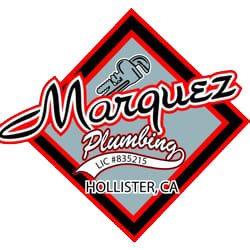The Top 3 Tips for Looking at a Water Heater Replacement
When it comes to choosing a water heater replacement, you want a model that will not only provide you with enough hot water for your family size…
You also want an energy-efficient model that will save you money and lower your utility bills!
Today we will walk you through our top 3 tips for choosing the right water heater replacement for your home.
Tip # 1: Determine Your Fuel Source
Energy.gov says,
“When selecting a new water heater, it’s important to consider what fuel type or energy source you will use, including its availability and cost.
The fuel used by a water heating system will not only affect annual operation costs but also the water heater’s size and energy efficiency. Fuel type and its availability in your area may narrow your water heater choices.”
While there are multiple fuel and energy source options in existence, we will cover the three most widely used and readily available.
Once you determine your fuel source options, it will be easier to determine which type of water heater is right for you.
Electricity
Electric water heaters are generally the cheapest in upfront costs, making them the perfect choice for many homes.
The biggest reason the upfront cost for electric units is lower has to do with installation costs.
Electric water heaters are simpler and faster to install in your home when compared to gas or propane units.
An electric water heater is an option for anyone who has access to electricity.
Overall, the cost of operating an electric unit will likely be more than operating a unit that runs on gas or propane.
And unless you get a tankless water heater, electric water heaters can take longer to heat your water up, which can be an inconvenience.
Natural Gas
While the upfront price is more per unit, a gas water heater is a great option for many people.
These units usually pay for themselves within a year, and they heat water twice as fast as a standard electric water heater.
But that doesn’t mean it’s the right choice for you – especially if your home has never had a gas water heater before.
According to Capital Care Plumbing,
“Gas water heaters require a more complex installation that includes a ventilation system.
If the home has never had a gas water heater, PVC pipes will need to be installed to vent through the roof. This ventilation system will also require occasional maintenance or repairs that may be done when the water heater is replaced.”
Propane
Propane water heaters have a higher BTU (British Thermal Unit) than other types of water heaters, which means they’re ideal for whole-house heating.
Propane units are able to heat water quickly, and even though the cost of propane is more than natural gas in some areas, you’ll need less propane in the long run.
Propane water heater installation is, again, a larger expense than electric installation.
That being said, if you opt for a propane water heater over electric, your yearly energy consumption will be cut in half.
Tip # 2: Determine Your Size
According to Plumbing Today, “To get an accurate answer (on the water heater size that you’ll need) you’d have to calculate out how much hot water you typically use during your busiest “hot-water-using” hour.
But if you only need a loose estimate of what size you need (versus an exact calculation), follow these guidelines:
- For 1 to 2 people: 30-40 gallons
- For 2 to 3 people: 40-50 gallons
- For 3 to 4 people: 50-60 gallons
- For 5+ people: 60-80 gallons”
Keep in mind, this only applies to tank water heater sizing.
Tankless water heaters are a great one size fits all option – but they are generally more expensive.
Tip # 3: Choose Your Water Heater Type
Storage Tank Water Heaters
A storage tank hot water heater can use gas, electricity, or propane. These units work by heating and storing water for long periods of time.
Tankless Water Heaters
Sometimes called “on-demand” water heaters, tankless units use high powered burners to instantly heat the water you need, rather than heating and storing that water in advance.
Condensing Water Heater
While less common than standard storage tank and tankless units, condensing water heaters are a great option if you care about energy efficiency.
While these units fall under the “tankless” category, they work a little bit differently than typical models.
“Once you turn on the switch, the process of heating water through combustion and gas burner beings. Then, exhaust gases are produced, and they actually contribute to the heating inside the unit since they produce additional heat.
That’s why condensing water heaters are more efficient than non-condensing ones; energy-efficiency is amazing, it can go up to 98%.”
Condensing water heaters are a larger cost upfront, but incredibly cheap to operate.
Hybrid Water Heater
As the name implies, hybrid models are the perfect marriage of an electric tank water heater and a tankless water heater.
These units work by moving hot air to the water tank as needed, rather than heating water on demand.
If the demand for hot water increases, the hybrid water heater has the ability to switch its operating mode and function as a standard electric water heater.
While the options for water heater types can seem nearly endless, it’s best to consult a plumbing expert before making any final decision.
Based on your home size, past water heater models, and your family’s needs, a plumbing expert will be able to weigh the pros and cons and make recommendations on the unit that will be best for you.
If you’d like a FREE consultation, contact Marquez Plumbing today.
Free Plumbing Estimate
We provide free estimates for all our customers.
